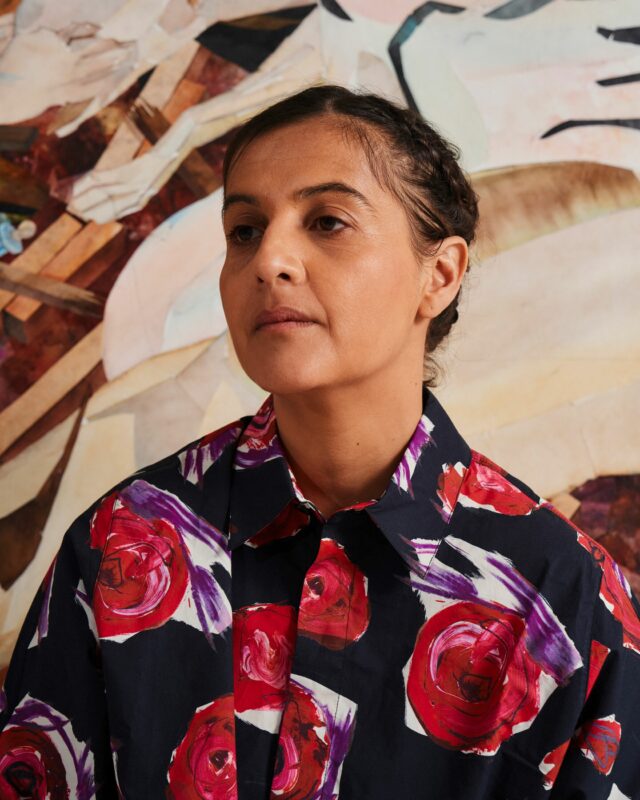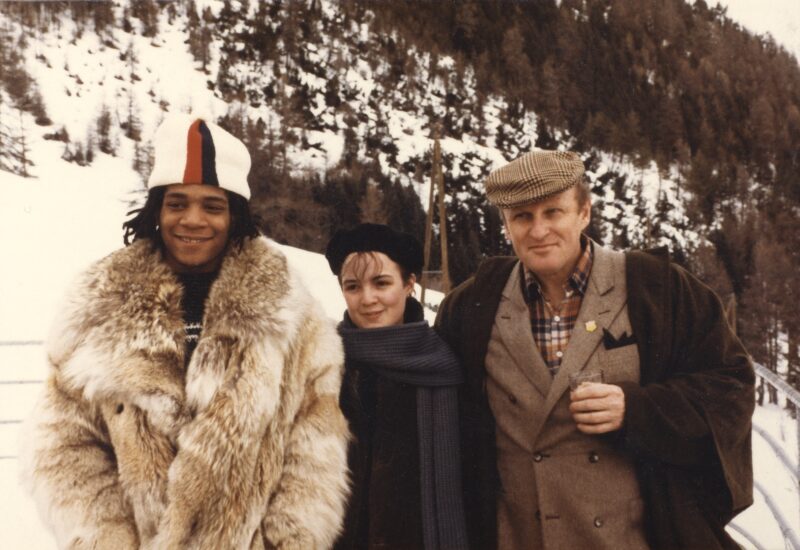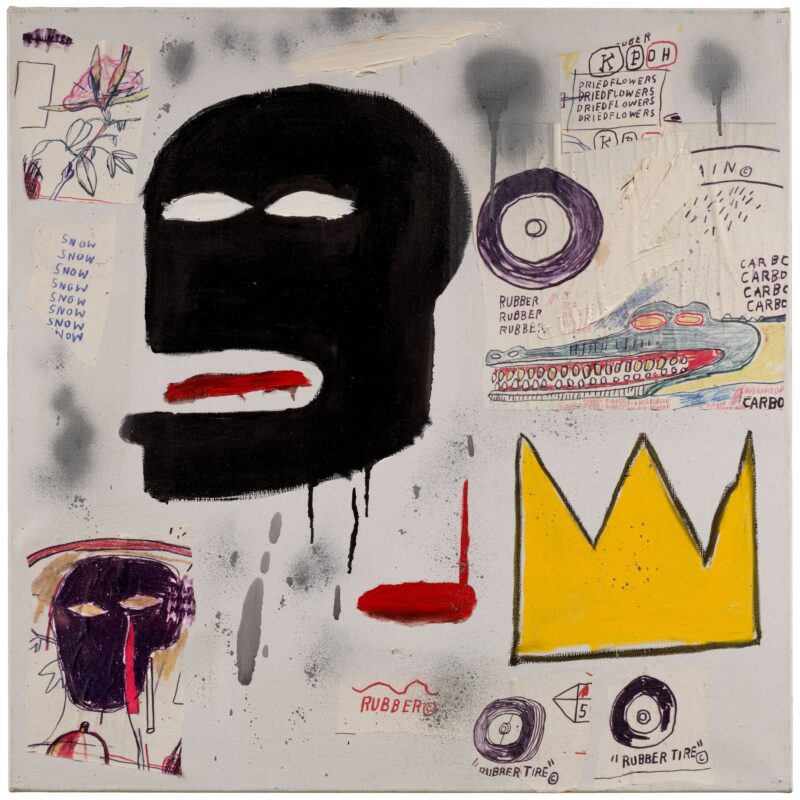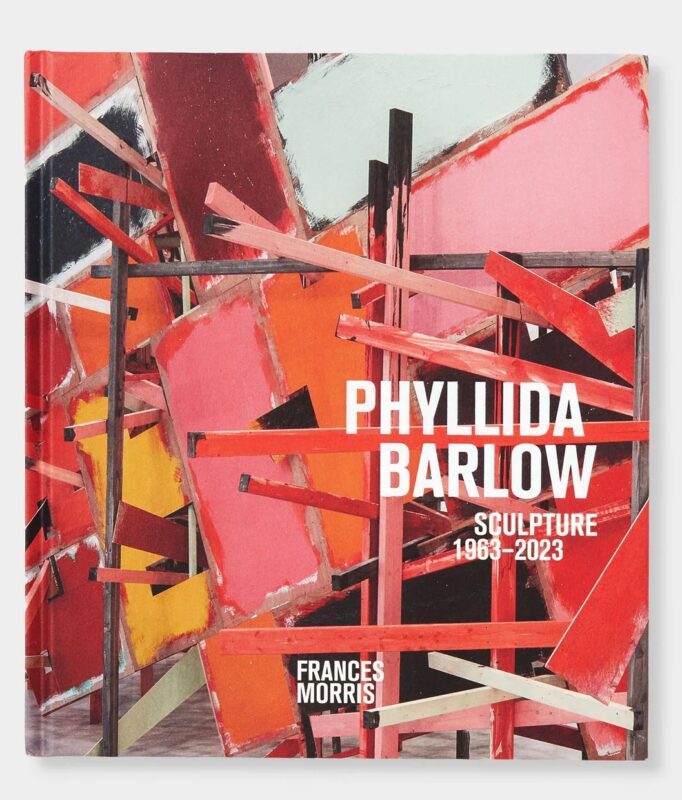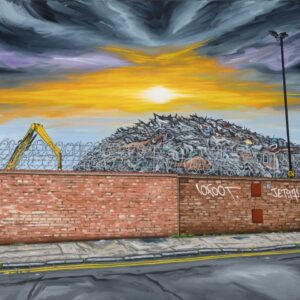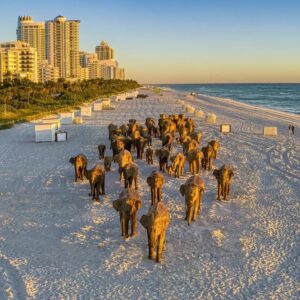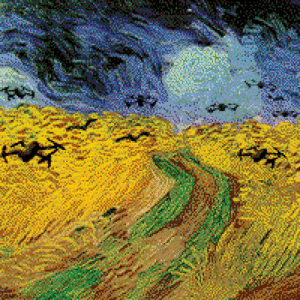Iwan Wirth, President and Manuela Wirth, Co-Founders of Hauser + Wirth, and Marc Payot, Partner and Vice President, today announced the establishment of Hauser + Wirth Institute, an independent non-profit 501(c)(3) private operating foundation dedicated to supporting art historical scholarship and to preserving and advancing the legacies of modern and contemporary artists through enabling greater public access to their archives for research.
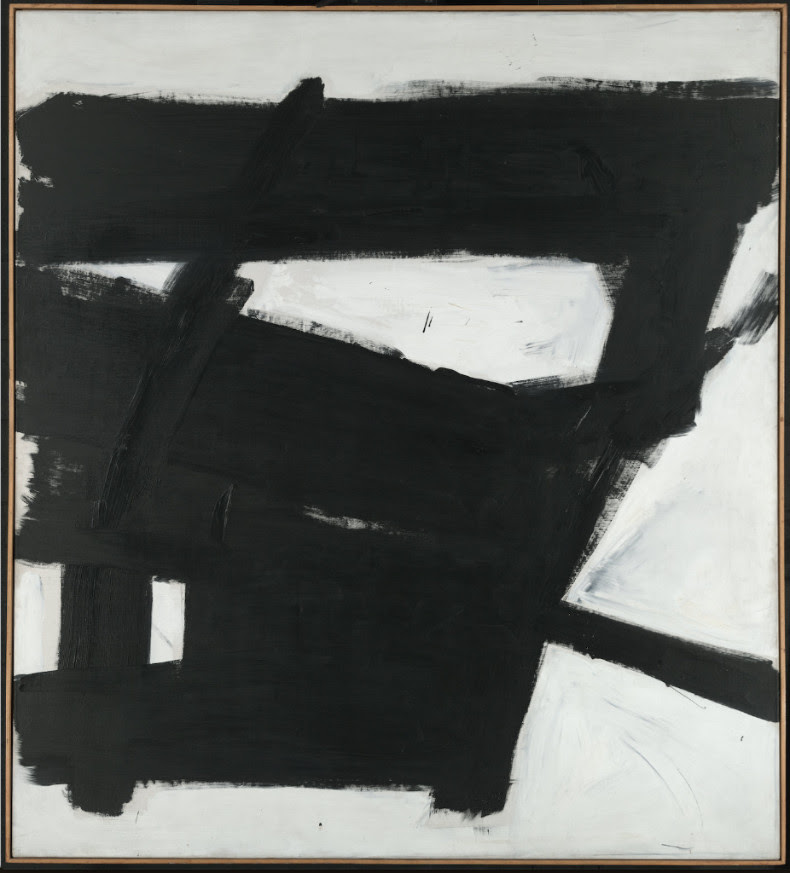
Franz Kline, Wanamaker Block, 1955 Yale University Art Gallery, Gift of Richard Brown Baker, B.A. 1935
© 2018 The Franz Kline Estate / Artists Rights Society (ARS), New York Jennifer Gross, Executive Director of Hauser & Wirth Institute Photo: Alex Dupeux
To pursue its mission, the Institute will create a study centre for the preservation, expedient cataloguing, and digitisation of primary research materials for direct study and free online public access to these resources. It will seek to nurture innovation and substance in art historical research through the funding of fellowships in partnership with artists’ estates, foundations, and educational institutions. Another core activity of the Institute will be the production of online catalogues raisonnés and print publications that advance the highest academic standards in order to strengthen the field of modern and contemporary art history. The organization will also present public programs, including exhibitions of archival material and symposia that engage scholars, archivists, artists, collectors, curators, estate managers, gallerists, and the general public in dialogues about the obligations and opportunities inherent in archive stewardship.
The activities of Hauser & Wirth Institute will include both projects connected with artists represented by Hauser & Wirth and artists who are unaffiliated with the gallery.
The Institute is under the leadership of Executive Director Jennifer Gross, formerly Chief Curator and Deputy Director of deCordova Sculpture Park and Museum in Lincoln, Massachusetts. Previous to her work at deCordova, Gross served as Curator of Modern and Contemporary Art at the Yale University Art Gallery in New Haven, Connecticut; Curator of Contemporary Art at the Isabella Stewart Gardner Museum in Boston, Massachusetts; and Founding Director of the Institute of Contemporary Art at Maine College of Art in Portland, Maine.
Hauser & Wirth Institute is governed by a Board of Directors with guidance provided by an independent Advisory Board of artists, advisors to artists’ estates, scholars, and archivists.
“The work of Hauser & Wirth Institute is a natural extension of our gallery’s support of living artists and the noteworthy estates and foundations we have represented for over 25 years,”
Iwan Wirth said.
“The art world has accelerated and globalized its exhibition and publishing activities so dramatically. In creating the Institute, we hope to make resources available to support similar growth in the areas of art historical research and the sharing of essential knowledge that fuel a richer understanding of art, artists, and the creative processes central to the history of culture for future generations. We are honored to have the opportunity to create an organization to do this work, and so grateful to our Advisors for joining in the effort.”
Jennifer Gross commented,
“We are thrilled to launch this unique and ambitious initiative at a time when there are fewer and fewer resources available to afford scholars the time and access needed for primary document research. It is a great privilege to care for and process archival materials. Even as the art world has become interested in these resources, it is critical to support public conversation about best stewardship and most effective and appropriate practices and partnerships. Technology should be enabling the sharing of intellectual and visual resources, but the speed at which the art world is operating now can preclude adequate attention to this work. We aim to broaden the art historical conversation to reflect the diversity of aesthetic and cultural values at hand today.”
Inaugural Projects of Hauser & Wirth Institute include the following:
Franz Kline Catalogue Raisonné
Hauser & Wirth Institute will produce an online catalogue raisonné of Franz Kline Paintings, 1950–1962, in cooperation with the Estate of Franz Kline. The Institute has provided funding to the Archives of American Art, Smithsonian Institution, to catalogue and digitize the Franz Kline archive in order to realize this project, and enable for the first time unrestricted online access to this material at Archives of American Art for educational purposes.
These two initiatives are intended to enrich scholarship on Franz Kline and increase public knowledge of his work and contributions to art history. Franz Kline Paintings, 1950–1962 will provide researchers and the public free and open access to this definitive resource on Kline’s paintings from a watershed period in the career of this eminent American abstractionist.
Franz Kline Paintings, 1950–1962 is being developed under the direction of Kline scholar Robert Mattison, Marshall R. Metzger Professor of Art History and Chair of the Department of Art at Lafayette College. Mattison’s scholarship on American modernism has included such artists as Arshile Gorky, Grace Hartigan, Robert Motherwell, Robert Rauschenberg, and Theodoros Stamos. Dr. Mattison earned PhD and MFA degrees from Princeton University, an MA from Williams College Graduate Program in the History of Art, and a BA from Middlebury College.
Jason Rhoades Archive
In cooperation with the Estate of Jason Rhoades, Hauser & Wirth Institute will catalogue, digitize, and create an online portal to the collected materials of the Jason Rhoades Archive. This initiative will enable free and open online access to this influential artist’s archive for the first time in order to encourage new scholarship and broader public knowledge of one of the most significant artists to emerge from Los Angeles since the 1960s, and to advance appreciation for his creative process and the broader cultural context in which he worked.
Comprising some eighty- five linear feet of material, the Rhoades archive includes installation manuals the artist prepared for works such as ‘Swedish Erotica and Fiero Parts’ (1994), ‘My Brother/Brancusi’ (1995), ‘Tijuanatanjierchandelier’ (2006), and ‘My Madinah. In pursuit of my ermitage…’ (2004). It also contains slides, photographs, receipts, correspondence, drawings, notebooks, and audiovisual material, including notes dictated by Rhoades and recorded interviews with the artist. Once catalogued, the archive will be made accessible to researchers by appointment.
Fellowships
Hauser & Wirth Institute supports research fellowships for predoctoral, postdoctoral, and senior scholars. These archives-based fellowships promote meaningful, field-enriching research by established art historians and encourage a new generation of visual art scholars. e fellowships are intended to nurture art historical dialogue and advance the use of primary materials in scholarly and curatorial work in the eld of modern and contemporary art.
Postdoctoral and Senior Scholar Fellowships
Hauser & Wirth Institute Postdoctoral and Senior Scholar Research Fellowship Program supports nine to twelve months of archival research in the field of modern and contemporary art. A stipend of up to $50,000 is awarded to each recipient. In 2018, these Fellowships are awarded to:
Melissa Rachleff, Associate Professor of Arts Administration, New York University
Billy Klüver and Julie Martin Archive
Rachleff is researching and transcribing interviews Klüver and Martin recorded with artists and other noteworthy contributors active in the art community between 1945 and 1965.
Robert Slifkin, Associate Professor of Fine Arts, New York University
David Smith Archive
Dr. Slifkin is researching the persistence of figuration in postwar art by considering David Smith’s use of unconventional materials and his incorporation of readymade industrial objects to redirect sculpture away from classical paradigms of mimetic statuary toward more non-representational portrayals of tools, weapons, and architecture.
Philip Larratt-Smith, curator and writer
Louise Bourgeois Archive
Larratt-Smith is researching and annotating Louise Bourgeois’s extensive psychoanalytic writings for publication.
Predoctoral Fellowships
Hauser & Wirth Institute Predoctoral Research Fellowship Program awards predoctoral fellows up to $10,000 to support two consecutive months of archival research. Applications will be accepted for archive-based research related to individual modern and contemporary artists.
In collaboration with the Arshile Gorky Foundation and the Guston Foundation, a fellow will be selected for each archive to undertake research in 2019. The program will open to additional applicant-designated archives in 2020.
Symposium on Open Access to Artists’ Archives
In spring 2019, the Institute will host the first in a series of symposia dedicated to advancing a public discourse on current issues and best practices in the management of artists’ archives. e inaugural one-day symposium will bring together artists, scholars, archivists, collectors, estate and foundations managers, and the public to address the changing landscape of archive stewardship in contemporary art.
Further details of the inaugural symposium will be announced this fall. Information will be made available on www.hauserwirthinstitute.org
Indianapolis Show Case
The Institute encourages dialogue about the value of archival material through its guest-curated Indianapolis Show Case installations at the organization’s offices at 1 Union Square West, New York. These installations are accompanied by related programs, such as curatorial conversations and salon gatherings. Installations in the Indianapolis Show Case may be viewed by appointment.
Leadership
Hauser & Wirth Institute is fully funded by Hauser & Wirth gallery but is independently governed by a Board of Directors, comprising Iwan Wirth (Chair), Marc Payot (Treasurer), Lynn Gumpert (Secretary) David Shevlin, and Executive Director Jennifer Gross. An autonomous Advisory Board of artists, advisors to artist estates, scholars, and archivists also guides the Institute to ensure the public bene t of its activities. Its members are: Martina Droth, Darby English, Charles Gaines, Joan Jonas, David Joselit, Zoe Leonard, Barry Rosen, Dieter Schwarz, and Francine Snyder. The Institute was established in New York City in 2016 and has been in operation as a think-tank in order to develop its inaugural series of special projects.
